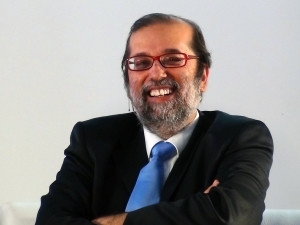
Communications minister Yunus Carrim says Cabinet will next Wednesday "decide" on the department's proposed Broadband Policy, amendments to the Broadcasting Digital Migration (BDM) plan, as well as the draft National Integrated ICT Policy.
Addressing the Cape Town Press Club, Carrim said: "These three major issues are related to the National Development Plan and New Growth Path, in particular the commitments to ensure South Africa's capacity to develop as an information society and knowledge economy is enhanced."
The broadband policy is key towards South Africa's vision of creating an e-literate society, while the amended BDM, which has not been released, should clarify whether set-top boxes, needed for digital television, will be encrypted.
Carrim says these policies show the department is seeking to resolve the situation in which policies, legislation and regulations lag behind developments in ICT. Noting ICT accounted for 6% of the economy in 2012, according to Statistics SA, he said it can aid economic growth, but must be managed to make sure the divide between those who have, and those who do not, does not widen.
"Ultimately, the new ICT policies, legislation and regulations must serve this goal. Which is in the interests of all of us, including the connected and privileged."
Explaining why current policies are outdated, Carrim said: "In the late nineties, when our policies were shaped, the communications sector was divided into broadcasting, telecommunications and postal services. We had separate white papers on telecommunications (1996), postal policy (1998) and broadcasting (1998). These three areas were regulated as silo sectors."
Carrim said, since then, markets have changed as new players emerged, technological developments have taken place, and there has been new thinking on how services can be delivered and used. He said the need for change is "glaring".
"There has been increasing convergence that blurs the boundaries between the sectors. Infrastructure can be used to deliver voice, video and content. Different services can now be received using the same devices.
"At the time of our white papers, televisions and cellphones were....well, almost, the same size and operated in different technological domains. Today, smartphones and flat screens characterise our daily digital lives and you can just as easily watch television on your phone and make a Skype call using your television."
Carrim said government still had to address some issues, affordability, the creation of new market structures to take account of changes in the ICT sector, and likely changes in the future and coordination of infrastructure.
Other aspects Carrim cited included increasing competition, managing scarce spectrum, and the role of government agencies, such as the Independent Communications Authority of South Africa.
Share